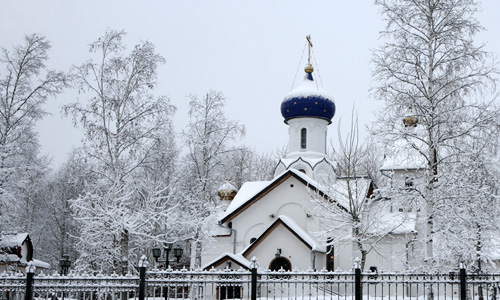While the rise in volatility was within our expectations, political and economic concerns surrounding Russia drove much of the market fluctuations last week. Russ K explains.
Volatility in global financial markets was acute last week, and it may be a prelude of what’s to come in the year ahead. As I write in my weekly commentary, an important driver of those swings will be markets’ adjusting to less accommodative U.S. monetary conditions. But on top of that, investors will continue to wrestle with several lingering geopolitical issues, particularly with respect to Russia.
While stocks continue to press higher, there’s no denying the environment is changing. Back in July, we suggested that as the date of a first Federal Reserve rate hike approached, market volatility was likely to rise from the unusually low levels that characterized 2013 and the first half of 2014. Indeed, since the summer, equity market gains have been accompanied by greater gyrations. Between Jan. 1 and the end of August, the average daily close on the VIX Index (a common measure of stock market volatility) was 13.5. The average has now risen to 15.5.
In addition to the expected shift in the monetary regime, the rise in volatility is also being driven by more unease from overseas. One area of increasing concern, both politically and economically, is Russia.
Oil prices fell another 6% last week, and are now down roughly 45% year-to-date. Lower oil prices will help mitigate the global slowdown, but plunging oil prices are inflicting real harm on several emerging market countries, notably Venezuela and Russia. While the Russian market and currency stabilized by Friday, the Russian ruble had plunged earlier in the week, despite a massive interest rate hike by the Russian central bank. The rate hike was the largest single increase since 1998, when Russian rates soared past 100% and the government defaulted on its debt.
Given this history, there is growing concern that despite a current account surplus and relatively low levels of debt, the combined effect of lower oil prices and economic sanctions leaves the Russian market vulnerable to speculative pressures. In short, the worry is that an economic contraction morphs into a financial crisis in the country.
Piecing it all together, we end the year with a few key thoughts: consider stocks over bonds, but be selective; prepare for volatility and focus on assets where value offers some potential downside protection; finally seek growth potential in select emerging markets, particularly in Asia.
Source: Bloomberg.
Russ Koesterich, CFA, is the Chief Investment Strategist for BlackRock. He is a regular contributor to The Blog and you can find more of his posts here.
International investing involves risks, including risks related to foreign currency, limited liquidity, less government regulation and the possibility of substantial volatility due to adverse political, economic or other developments. These risks often are heightened for investments in emerging/developing markets and in concentrations of single countries.
This material represents an assessment of the market environment at a specific time and is not intended to be a forecast of future events or a guarantee of future results. This information should not be relied upon by the reader as research or investment advice regarding the funds or any security in particular.
©2014 BlackRock, Inc. All rights reserved. iSHARES and BLACKROCK are registered trademarks of BlackRock, Inc., or its subsidiaries. All other marks are the property of their respective owners.
iS-14312













